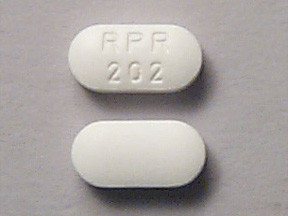RILUZOLE - ORAL
PHONETIC PRONUNCIATION: (RIL-ue-zole)
COMMON BRAND NAME(S): Rilutek
GENERIC NAME(S): riluzole
Uses
USES: This medication is used to treat a certain type of nerve disease called amyotrophic lateral sclerosis (ALS, also commonly called Lou Gehrig's disease). Riluzole helps to slow down the worsening of this disease and prolong survival. However, it is not a cure for ALS, and it does not reverse nerve damage or muscle weakness. Riluzole is thought to work by protecting the nerves in the brain and spinal cord from too much of a natural substance called glutamate that may be part of the cause of nerve damage.
How to use RILUZOLE - ORAL
HOW TO USE: Read the Patient Information Leaflet if available from your pharmacist before you start taking riluzole and each time you get a refill. If you have any questions, ask your doctor or pharmacist. Take this medication by mouth as directed by your doctor, usually every 12 hours on an empty stomach at least 1 hour before or 2 hours after a meal. Use this medication regularly to get the most benefit from it. To help you remember, take it at the same times each day. Do not increase your dose or take this drug more often or for longer than prescribed because your risk of side effects will increase. Tell your doctor if your condition gets worse.
Side Effects
Precautions
Interactions
Overdose
Images
Reviews
Faq for RILUZOLE - ORAL
Riluzole is used to treat amyotrophic lateral sclerosis (ALS), also known as Lou Gehrig's disease. It slows down the progression of the disease and may improve survival.
The exact mechanism of action of Riluzole is not fully understood. However, it is believed to work by reducing the release of glutamate in the brain, which helps prevent damage to nerve cells and delays the progression of ALS.
Riluzole is taken orally, usually twice a day. It is important to follow the dosage instructions provided by your doctor. It is recommended to take it on an empty stomach, at least one hour before or two hours after meals.
The common side effects of Riluzole include nausea, vomiting, stomach pain, diarrhea, weakness, dizziness, headache, and changes in taste. If you experience any severe or persistent side effects, it is important to notify your doctor.
Riluzole may interact with other medications, including certain antidepressants and antifungal drugs. It is important to inform your doctor about all the medications you are taking to avoid any potential drug interactions.
Riluzole may take several weeks or months to show its full effect in slowing down the progression of ALS. It is important to continue taking the medication as prescribed, even if you do not see immediate improvement.
Riluzole is not a cure for ALS. It helps in slowing down the progression of the disease and may improve survival. It is important to discuss your treatment goals and expectations with your doctor.
Riluzole should not be taken by individuals who are allergic to it or have a history of liver disease. It may also interact with certain medications, so it is important to inform your doctor about your medical history and current medications before starting Riluzole.
Alcohol may worsen the side effects of Riluzole, such as dizziness and drowsiness. It is generally recommended to avoid or limit alcohol consumption while taking Riluzole.
Disclaimer
IMPORTANT: HOW TO USE THIS INFORMATION: This is a summary and does NOT have all possible information about this product. This information does not assure that this product is safe, effective, or appropriate for you. This information is not individual medical advice and does not substitute for the advice of your health care professional. Always ask your health care professional for complete information about this product and your specific health needs.





No Reviews Yet